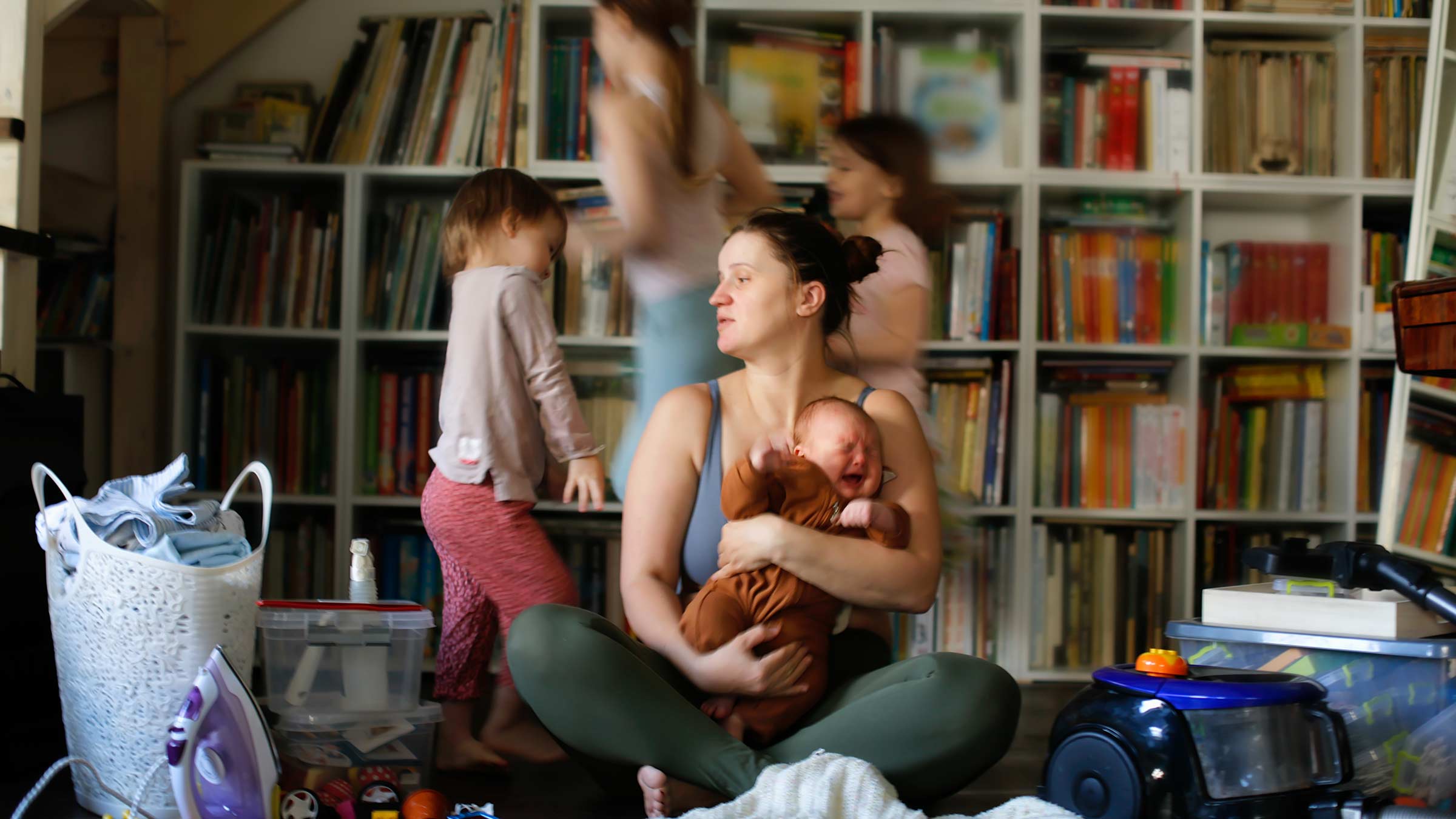
You’re the first call for teachers, day care providers, grandparents and friends’ parents.
You schedule medical appointments and playdates, plan meals and birthday parties, arrange child care and summer camps. You identify sports teams, music classes and tutoring for your children and ensure they get there, either by driving them or finding them a ride.
You’re the “default parent,” a role predominantly occupied by moms, though occasionally fathers assume this position. The arrangement is rooted in traditional parenting roles and is reinforced throughout our day-to-day lives.
As the default parent, you’re often the primary person your children turn to for help. I joke that my children would walk by a dozen adults and a water fountain to ask me for a glass of water.
It’s not just the children — it’s as though the world expects you’re always on call, ready to help with homework, resolve conflicts with friends, or provide comfort after a tough day at school. This can lead to a sense of being perpetually needed. And that can be draining over time.
The burden of being the default parent
The role of the default parent includes a significant emotional burden. The constant availability (or perceived availability) and perpetual need can be draining over time and can lead to feeling overwhelmed.
The results vary, but they can include symptoms of stress, fatigue and a sense of isolation, as personal time and self-care often take a backseat to parenting duties, resulting in burnout.
Societal expectations place additional pressure on the default parent, particularly mothers, causing feelings of guilt and inadequacy if they struggle to meet these unrealistic expectations.
Contentment as the default parent
Being the default parent isn’t necessarily all bad. You may not have a problem with handling more than your fair share of parenting responsibilities because you like it, feel you’re good at it, or you prefer to maintain control.
However, being the default parent can be overwhelming and exhausting. It can impede your ability to engage in the kinds of social and leisure activities you need to help maintain balance. The analogy of spinning plates on sticks is apt. When too many plates are spinning at the same time they begin to fall, leading to an untenable situation for the default parent.
Five tips for the default parent
While you may not be able to give up your role as the default parent, here are recommendations to stave off exhaustion and strike a better balance:
1 If you’re overwhelmed, try to be specific about which problem you’re trying to solve.
Do you want more free time? Are there tasks you no longer want? Are you craving more appreciation for all that you do? Once you know what you’re trying to address, you can figure out ways to resolve that.
2 Let your co-parent know how you feel.
Holding back on your feelings won’t help you, and it won’t help bring about changes in your relationship and the balance of responsibilities.
3 Be willing to let your co-parent take on responsibility and then GIVE IT TO THEM.
I’ve worked with a lot of women over the years who are exhausted and want help, but they also want it done exactly the way they would do it. If you’re going to give up a responsibility, you also have to give up a little control. We don’t partner with our clones. Your co-parent might do it quite differently from the way you would do it, and you’re going to have to figure out how to accept that.
4 Learn to appreciate and express mutual appreciation.
We all want to be acknowledged for our efforts. Take a moment to appreciate your spouse’s contribution through a simple “thank you,” a kind note or a small act of kindness. If you need appreciation, let your spouse know. Mutual recognition strengthens relationships and fosters a supportive environment.
5 Make sure each parent has time for themselves.
Leisure activities are great for parents’ well-being because they help reduce stress and improve mood. Doing things you enjoy, like hobbies or exercise, can make you feel happier and more relaxed. When each parent has time for hobbies and friends, they’re much happier.
Parenting is tough. When children are young, we expect to be exhausted, and both parents usually are. But as they grow, the responsibilities only increase.
Whether you’re the default parent or serve as a backup, open communication is key. There’s no one-size-fits-all approach to building a family life. When you need help, don't hesitate to ask for it. You'll feel much happier, and your relationship will likely be healthier too.

Help for mental health conditions
Ohio State offers personalized, compassionate care for your mental health concerns.
Learn more




